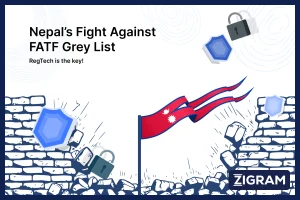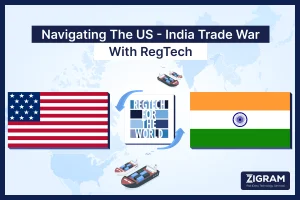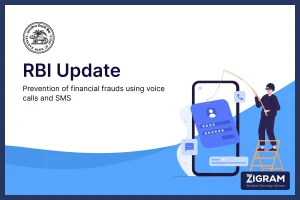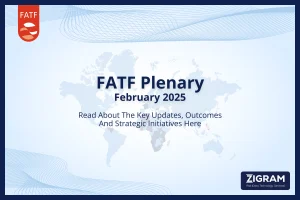The Know Your Customer (KYC) process is a critical component of financial institutions’ operations, aiming to balance stringent regulatory requirements with customer expectations. However, traditional KYC methods often pose challenges for customers, leading to friction in the onboarding process. To address these issues, innovative remote KYC solutions like Video KYC (V-KYC) have emerged, revolutionizing the way identity verification and compliance are handled.

Key Stats
The importance of KYC and AML compliance cannot be overstated. They are integral in preventing illegal financial activities, including terrorism financing and money laundering. Yet, the challenges and complexities surrounding these processes persist, requiring innovative solutions to ease the burden on financial institutions.
Here are some staggering statistics shedding light on the challenges, costs, and significance of KYC and AML compliance:
PWC: Large banks spend an average of USD 88 million yearly on AML-related data storage, with no apparent competitive advantage gained from this significant expenditure.
Compliance Week: In 2020, KYC and AML fines amounted to a whopping USD 10.4 billion for financial institutions.
RealWire: Banks could potentially save atleast USD 12 billion annually by enhancing their KYC/AML systems, leading to improved customer retention and reputation.
Forbes: Onboarding customers takes an average of 24 days due to the complexities of KYC and AML impacting customer abandonment rates and brand perception.
Fenergo: Despite only 44% of global AML and KYC fines affecting the U.S., they account for a staggering 91% of the total fine value, totalling USD 23.52 billion over a decade.
Signicat: 90% of the bank customers abandon an onboarding application if it takes more than an hour, highlighting the critical need for an efficient process,
Thomas Reuters: Only 30% of corporate respondents proactively update their banks on KYC and Customer Due Diligence (CDD) changes due to the cumbersome process.
S&P Global: 67% of corporate treasurers restrict working with banks due to KYC challenges, impacting business decisions and relationships.
Bank Director: An estimated USD 180 million in AML analyst salaries goes towards the Bank Secrecy Act (BSA) and SAR reports alone, indicating substantial manpower involvement.
GLEIF: Nearly 6 in 10 senior salespersons spend atleast 1.5 days per week on onboarding processes, showcasing resource heavy nature of KYC and AML.
What Does Remote KYC Solve?
Remote KYC is the answer to the long, cumbersome and financially draining process of AML compliance.
Challenge 1: Geographical Constraints
The conventional KYC process necessitated physical visits, restricting customers to banks within their vicinity.
Solution 1: Online Video KYC With Geotagging
V-KYC empowers customers to complete verification remotely via live video calls. By leveraging geotagging through platforms like Google Maps, address verification becomes swift and efficient, eliminating the need for in-person visits.
Challenge 2: Elaborate Documentation
Cumbersome paperwork, extensive forms, and document submissions have long been a pain point for customers undergoing KYC.
Solution 2: API-Integrated KYC Verification
Through API integration and e-documents, the need for voluminous paperwork diminishes. AI-driven facial recognition tools enhance accuracy, making verification smoother and less reliant on manual processes.
Challenge 3: Delay In Onboarding
The time-consuming nature of traditional KYC procedures often leads to delays in customer onboarding, impacting access to financial services.
Solution 3: Real-Time KYC Verification
Real-time digital identification eliminates the need for physical signatures and in-person visits, streamlining the onboarding process and enabling rapid access to financial products.
Challenge 4: Dropping Out Of The Process
Customers, fatigued by prolonged procedures, frequently abandon the KYC process, causing potential losses for financial institutions.
Solution 4: Visibility And Tracking
V-KYC offers transparency by allowing customers to track the progress of their verification. Financial institutions benefit from monitoring completion percentages, ensuring customers remain engaged.
Challenge 5: Cost Of Compliance
Traditional KYC incurs substantial costs, both for customers and financial institutions, affecting accessibility and affordability.
Solution 5: Internet-powered KYC Verification
Remote KYC, powered by the Internet and reliable vendors, significantly reduces costs for both parties. This cost-effectiveness enhances accessibility to financial services while streamlining compliance for institutions.
Challenges of Remote KYC?
Security Concerns In Remote KYC
One of the foremost challenges faced in remote KYC processes revolves around security. Verifying identities without face-to-face interaction exposes systems to potential vulnerabilities. Instances of data breaches, identity theft, and fraudulent activities can threaten the integrity of remote verification processes. Ensuring secure transmission, storage, and handling of sensitive personal data becomes paramount.
Fraud Prevention And Verification
Fraudsters continually devise sophisticated methods to bypass security measures. Remote KYC processes are susceptible to fraudulent activities, such as the use of stolen identities or falsified documents. The challenge lies in implementing robust verification mechanisms that can accurately detect and prevent fraudulent attempts while maintaining a smooth user experience.
Compliance With Regulatory Standards
Navigating the complex web of regulatory requirements across different regions and jurisdictions poses a significant hurdle for businesses employing remote KYC. Compliance with varying standards, such as Anti-Money Laundering (AML) and Customer Due Diligence (CDD) regulations, demands meticulous attention to detail. Ensuring that remote processes align with legal and industry-specific guidelines while safeguarding customer data adds complexity to the KYC landscape.
User Experience And Adoption
While stringent verification measures are essential for security and compliance, they often present challenges in terms of user experience. Lengthy or intricate verification procedures may deter customers, leading to frustration or abandonment of the process. Finding the right balance between thorough verification and a seamless, user-friendly interface remains a critical challenge.
Document Verification And Technology Limitations
The authenticity of identity documents provided remotely poses another challenge. Verifying the legitimacy of documents without physical inspection requires sophisticated technology. However, technological limitations, such as system failures, connectivity issues, or compatibility problems across devices, can hinder the efficacy of remote KYC processes.
Cross-Border Complexity And Data Privacy
Operating across borders introduces complexities due to differing regulations and standards for identity verification. Ensuring compliance while maintaining the privacy and security of customer data across multiple jurisdictions becomes a challenging task.
Role Of AI In Mitigating The Challenges?
Fraud Detection And Pattern Recognition
AI algorithms can analyze vast amounts of data to identify patterns and anomalies associated with fraudulent activities. Machine learning models can learn from historical data, flag suspicious behavior, and continuously adapt to new fraud tactics, strengthening the overall security of remote KYC processes.
Automation For Efficiency
AI automation streamlines the verification process, reducing manual intervention. It speeds up identity verification by automatically validating customer information against multiple databases or cross-referencing various sources, ensuring accuracy and efficiency.
Risk Profiling And Decision Making
AI enables the creation of risk profiles by analyzing customer behaviour and transaction patterns. These profiles aid in making informed decisions during the verification process, determining the level of risk associated with a particular customer and customizing the verification process accordingly.
Compliance Adherence
AI-powered systems can continuously monitor regulatory changes across different regions and swiftly adapt to ensure compliance. These systems can update verification protocols and procedures in real-time, ensuring adherence to evolving regulations.
Improving User Experience
Through AI-driven personalization, remote KYC processes can be tailored to provide a smoother and more intuitive user experience. AI can analyze user interactions, understand preferences, and optimize the verification journey, reducing friction and increasing completion rates.
Continuous Improvement
AI thrives on data, allowing for continuous learning and improvement. By analyzing feedback, successful verifications, and evolving fraud tactics, AI systems can adapt and refine their algorithms, staying ahead of emerging threats and enhancing accuracy over time.
ZIGRAM has a wide range of products to equip any business with the latest technology in the world of Anti Money Laundering.
Our flagship product, PreScreening.io (PSIO), an AI-driven product designed for name screening, risk profiling, and client onboarding, can significantly enhance and streamline remote KYC processes in several ways:
Name Screening And Verification:
PSIO utilizes AI algorithms to conduct extensive name screening against various databases and watchlists. It helps in identifying individuals or entities with potential risk factors, ensuring compliance with regulatory requirements. This feature assists in swiftly flagging any matches with sanctioned or high-risk entities during the remote KYC process.
Risk Profiling And Assessment:
The AI capabilities of PSIO enable the creation of detailed risk profiles for clients. By analyzing various parameters, including transaction history, behavior patterns, and identity details, it provides a comprehensive assessment of the risk associated with a particular client. This assists in tailoring the KYC process based on the risk level, ensuring appropriate scrutiny for high-risk clients while expediting the process for lower-risk ones.
Efficient Client Onboarding
PSIO's AI-driven automation expedites the client onboarding process by reducing manual intervention. Automating the verification of client-provided information against multiple databases and sources accelerates the KYC process while maintaining accuracy. This efficiency is especially beneficial in remote settings, where seamless and rapid onboarding is crucial.
The evolution of KYC processes through remote KYC represents a pivotal shift in the financial landscape. By addressing geographical limitations, simplifying documentation, expediting onboarding, improving visibility, and mitigating costs, these solutions empower both customers and institutions. Embracing such innovative methodologies ensures regulatory compliance and prioritises a seamless and efficient customer experience.
ZIGRAM is the one-stop solution for all your compliance needs. Try our FREE DEMO to experience what you’re missing in your AML and KYC processes!
- #RemoteKYC
- #AML
- #NameScreening






